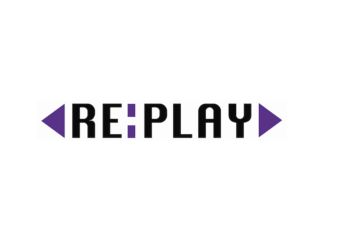Join RE:PLAY: Become a Playful Learning Fellow
By: Katie Piatt
Last updated: Friday, 18 July 2025

The University of Sussex is playing a central role in a three-year ESRC project RE:PLAY, investigating the value of playful approaches to teaching and learning in higher education. RE:PLAY (Researching the Effectiveness of Playful Learning in Higher Education) is bringing together researchers from universities across the UK, the project will explore how playful learning is currently used, with the goal of developing evidence of what methods and approaches work and why. This is the first large-scale study of its kind focused on playful learning in UK universities. The project is responding to the growing interest in alternative approaches in addition to traditional teaching formats such as lectures. It explores the role that play through methods such as role play, simulation, collaborative games and interactive challenges can play in developing students with the problem solving, critical thinking and creative skills needed for and after university.

Although the use of playful learning is increasingly used across the sector, there remains limited research into its effectiveness. RE:PLAY aims to fill this gap by offering a robust evidence base that can inform future teaching practices. Explaining why this work matters, University of Sussex lead for the project, Katie Piatt states:
“Playful learning gives us space to take risks, to be curious and to engage with ideas in ways that are genuinely meaningful. When we experiment, when we are allowed to be silly and to fail safely, that is when learning and connection happen. That is why the RE:PLAY project is so important, it helps us evidence what many of us know instinctively: that play has a serious and transformative role in adult learning."
RE:PLAY seeks to develop an evidence base on the effectiveness of eight playful learning approaches: roleplay, simulations, traditional play, digital worlds, hybrid play, gamification, playfulness, and playmaking. RE:PLAY will conduct their research by recruiting fellows from across Arts and Humanities, Social Sciences and Business, STEM, and Health-related subjects.
The project is structured around four key phases:
- explore how playful learning approaches are currently used in UK HE and the perceptions of senior leaders;
- investigate experiences, benefits, drawbacks, and barriers associated with playful learning for students, academics, learning designers, and academic support staff;
- design, implement, and evaluate a learning design process, framework, and toolkit for developing effective playful learning experiences;
- research the effects of playful learning on student learning, intrinsic motivation, fear of failure, sense of belonging, and creativity (RE:PLAY)

We are currently looking for academics to become RE:PLAY Fellows. You will be supported to redesign a module using playful approaches and research the experience of change on your own practice and the impacts of those changes on students. We do not expect you to have existing knowledge and experience of playful approaches – we are primarily looking for people with an enthusiasm and willingness to try something new.
We are looking for people who:
- lead modules running in 2025-26 and 2026-27 with more than 30 students that does not currently use playful learning techniques;
- are enthusiastic to undertake playful redesign of a significant aspect of the module teaching in 2025-26;
- are willing to support student data collection (a 10-minute student survey at the start and end of each module), help identify control modules for in-year effects, and take part in three 30-minute interviews.
RE:PLAY Fellows will receive dedicated learning design support and be awarded £500 honorarium, as well as having the opportunity to contribute to a world-leading research project and national teaching community.
If you would like to find out more or have a conversation about your eligibility, please contact Natalie Trevino (Educational Enhancement).
Further information: https://research.northumbria.ac.uk/replay/
